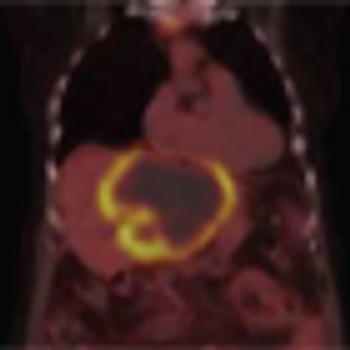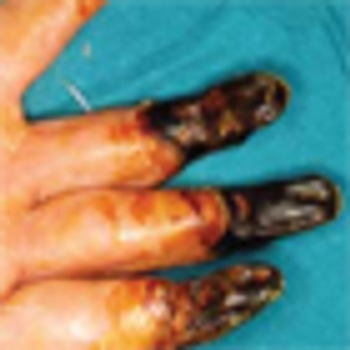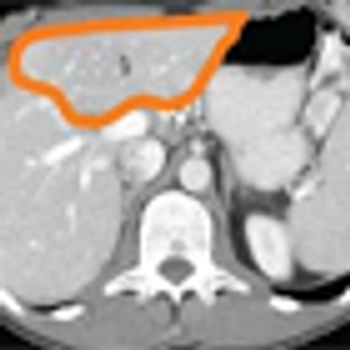
A 65-year-old woman with rheumatoid arthritis and autoimmune hepatitis presented to clinic for evaluation of a liver mass. Six months prior to presentation, workup was initiated for elevated liver enzyme levels.

Your AI-Trained Oncology Knowledge Connection!


A 65-year-old woman with rheumatoid arthritis and autoimmune hepatitis presented to clinic for evaluation of a liver mass. Six months prior to presentation, workup was initiated for elevated liver enzyme levels.

Cancer patients can expect to suffer pain, particularly in the advanced stages of the disease. Optimal pain control is an essential part of cancer management from the time of diagnosis, as pain can interfere with cancer therapy, limits patient function, and negatively impacts quality of life.

The outcome for patients with cryoglobulinemia has improved since the recognition that the condition is frequently associated with HCV and that elimination of this virus has therapeutic benefit for affected patients.

We recommend screening for cryoglobulinemia in all patients with HCV infection, livedo reticularis, vasculitic cutaneous ulcers, positive rheumatoid factor or rheumatoid vasculitis, membranoproliferative glomerulonephritis, or atypical Waldenström macroglobulinemia.

The surgical strategies of “classic, reversed, or combined” resection of colorectal cancer and colorectal liver metastases have to be tailored to a specific patient, and all three strategies have a role in the treatment of stage IV colorectal cancer today.

There is limited data available to guide decision making in the management of colorectal liver metastases. Despite a trend toward increased use of perioperative chemotherapy, others have questioned the role of this approach in patients with solitary lesions and a longer disease-free interval.

Cisplatin-based chemotherapy has transformed the prognosis of testicular germ cell cancer (GCT). It has converted the chief mortal malignancy in younger men into a model for the curability of cancer.

Germ cell tumors (GCT) are an exemplar of the successful use of chemotherapy and of the successful interplay of phase II and phase III trials. The biggest contributor to cure in metastatic GCT is cisplatin-based chemotherapy, unchallenged after more than 30 years.

The historical rationale for the 340b program is a good one: indigent patients do need reliable access to prescription drugs, and entities meeting this need should be supported. However, the evolution of the 340b program has strayed widely from its original intent.

I have read multiple overviews of the current management of castration-resistant prostate cancer (CRPC). These articles have very adeptly summarized the key trials leading to a multitude of US Food and Drug Administration (FDA) approvals of new agents for men with CRPC.

With the emergence of several new agents for the treatment of advanced prostate cancer, new questions have arisen regarding the optimal sequence or combination of these agents. As we await the results of ongoing and planned clinical trials to answer some of these questions directly, the decision-making process will rely heavily on considerations of side effects and patient characteristics.

In spite of the complicated etiologic, clinical, and pathologic scenario of cryoglobulinemia, physicians can play a key role in its successful management by early recognition of the most common clinical presentations.

In this review we will outline an approach to sequencing new therapies for metastatic castration-resistant prostate cancer (CRPC), with particular attention paid to the biology of CRPC.

This article represents the consensus opinion of an expert panel and may be used to inform clinical recommendations in vaginal cancer management.

In a good percentage of patients who have oligometastatic disease confined to a single organ-usually the liver-complete metastasectomy can result in cure. However, once the decision to pursue surgery is made, there remain a number of issues that must be addressed in order to ensure the best possible outcome.

“Biology is King; selection of cases is Queen, and the technical details of surgical procedures are princes and princesses of the realm who frequently try to overthrow the powerful forces of the King and Queen, usually to no long-term avail, although with some temporary apparent victories.”